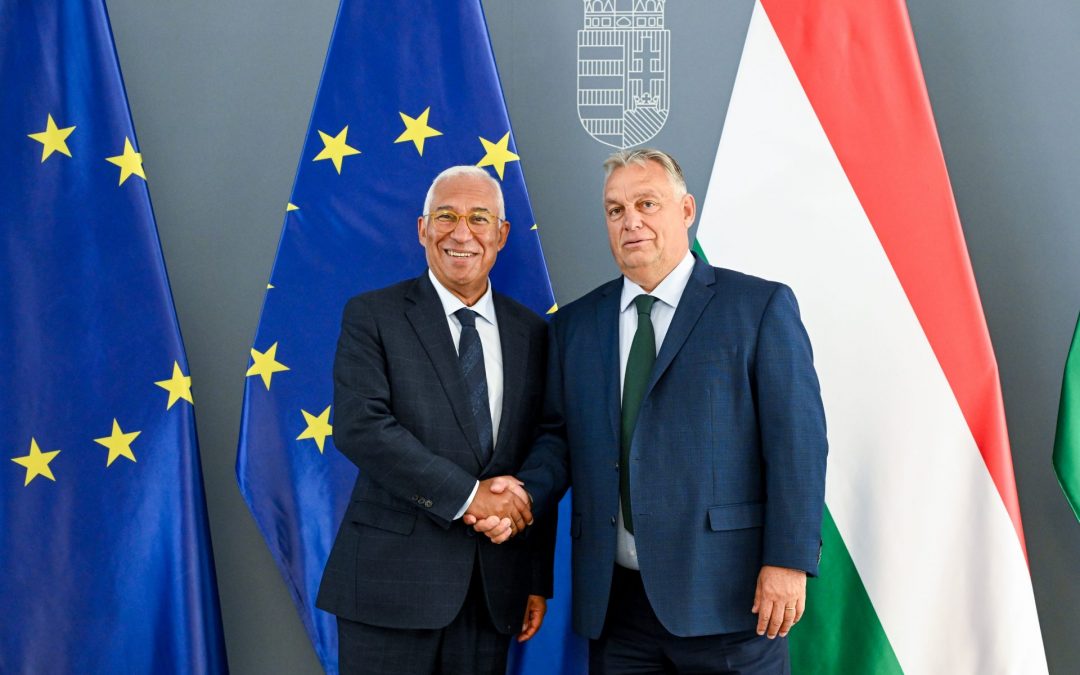The future President of the European Council, António Costa, meets today with the Hungarian Prime Minister, Viktor Orbán, in Budapest, continuing a tour of the capitals of the European Union (EU) that began in Italy with Giorgia Meloni.
About two months before taking office, on December 1st, the former Prime Minister António Costa began contacts with the heads of government and state of the EU, European sources told the Lusa agency.
Today, Costa meets with Orbán, the controversial nationalist head of government of Hungary, a country that currently holds the rotating presidency of the EU Council, during which the first European summit chaired by António Costa will be held on December 19 and 20.
But this tour of António Costa in the EU began at the end of July in Rome, in a meeting with the Italian Prime Minister, Giorgia Meloni, who was the only one among the 27 European leaders who voted against the former Prime Minister’s choice for the new position, at the European summit last June.
Viktor Orbán, for his part, abstained in the election of António Costa, supported by the remaining 25 EU leaders.
After a summer break, António Costa held face-to-face meetings in September with the acting Prime Minister of Belgium, Alexander De Croo, and Luxembourg’s Luc Frieden, as part of this tour that includes a meeting on Wednesday with the Polish Prime Minister, Donald Tusk.
At the end of this week, he will meet with fellow socialist Pedro Sánchez, the head of the Spanish government.
Then, António Costa travels to Denmark, which will host the rotating presidency of the EU Council in the second half of 2025, making visits to the Nordic countries at that time.
The goal is to hear all 27 heads of government and state of the EU about their political priorities for the next European institutional cycle before taking office, with most visits expected to take place in October, sources told Lusa.
António Costa, who was part of the European Council representing Portugal for eight years (during which he was Prime Minister), already knows some of the EU leaders with whom he is now meeting, but intends, during his two and a half year mandate at the head of the institution, to find points of convergence for commitments among the 27.
Last June, Costa was then elected by the heads of state and government of the EU as president of the European Council for a mandate of two and a half years starting December 1, 2024, being the first Portuguese and the first socialist to head the institution, succeeding the Belgian Charles Michel.
 go to the original language article
go to the original language article
This article has been translated by Artificial Intelligence (AI). The news agency is not responsible for the content of the translated article. The original was published by Lusa.
